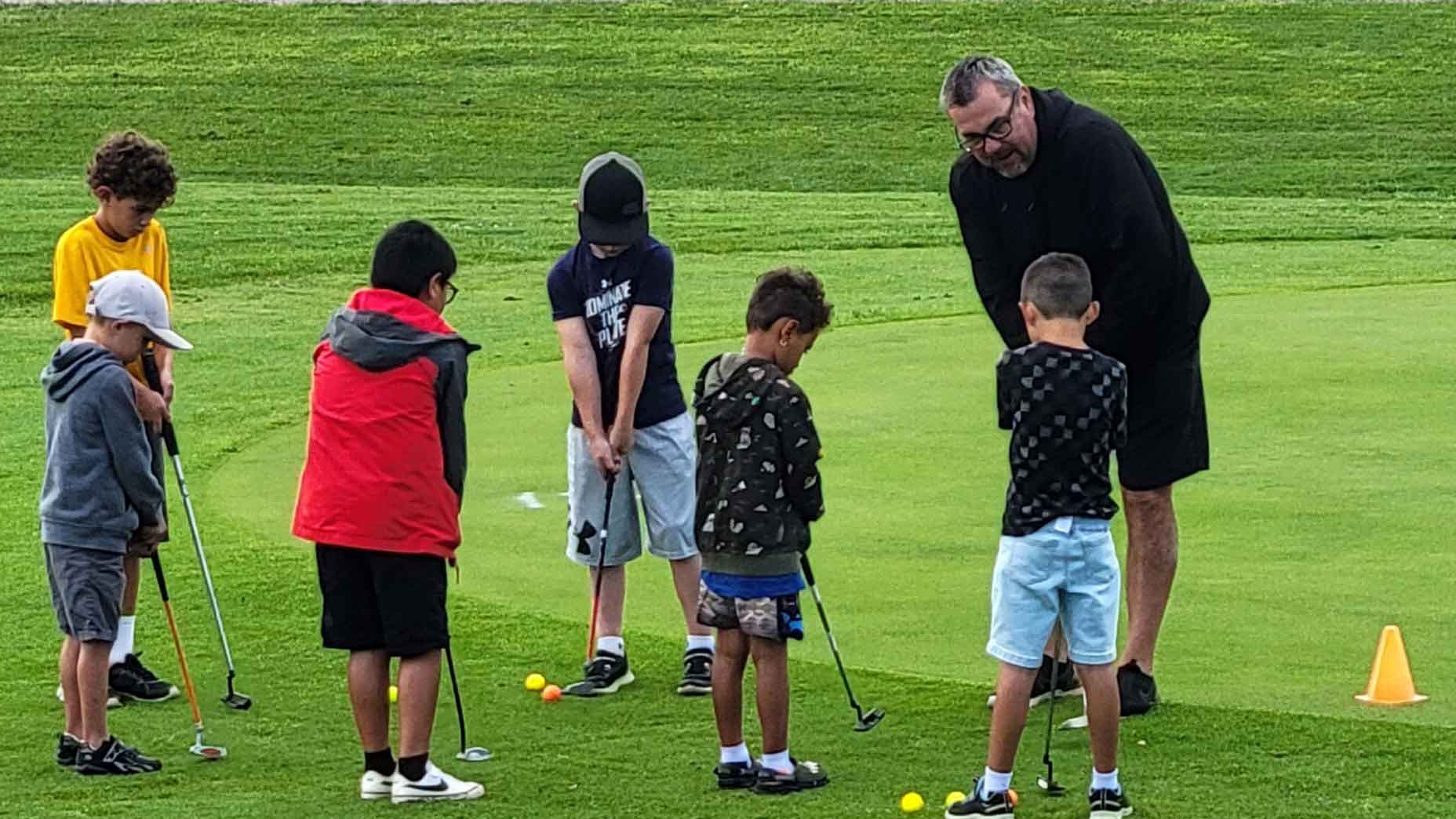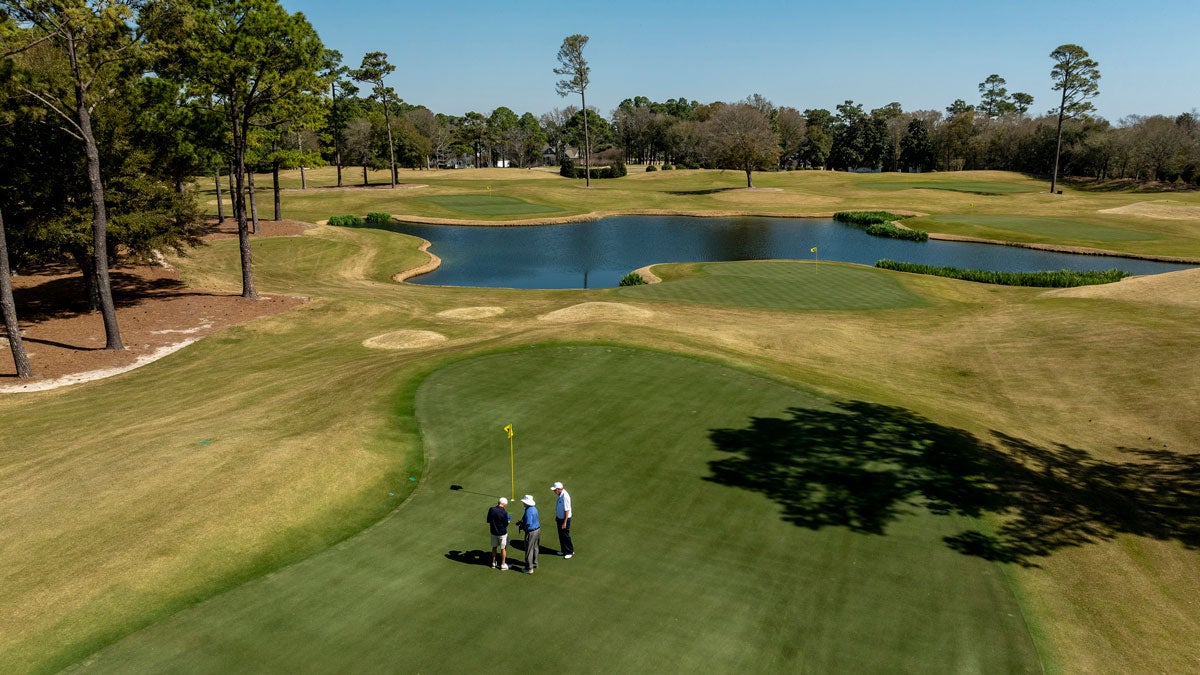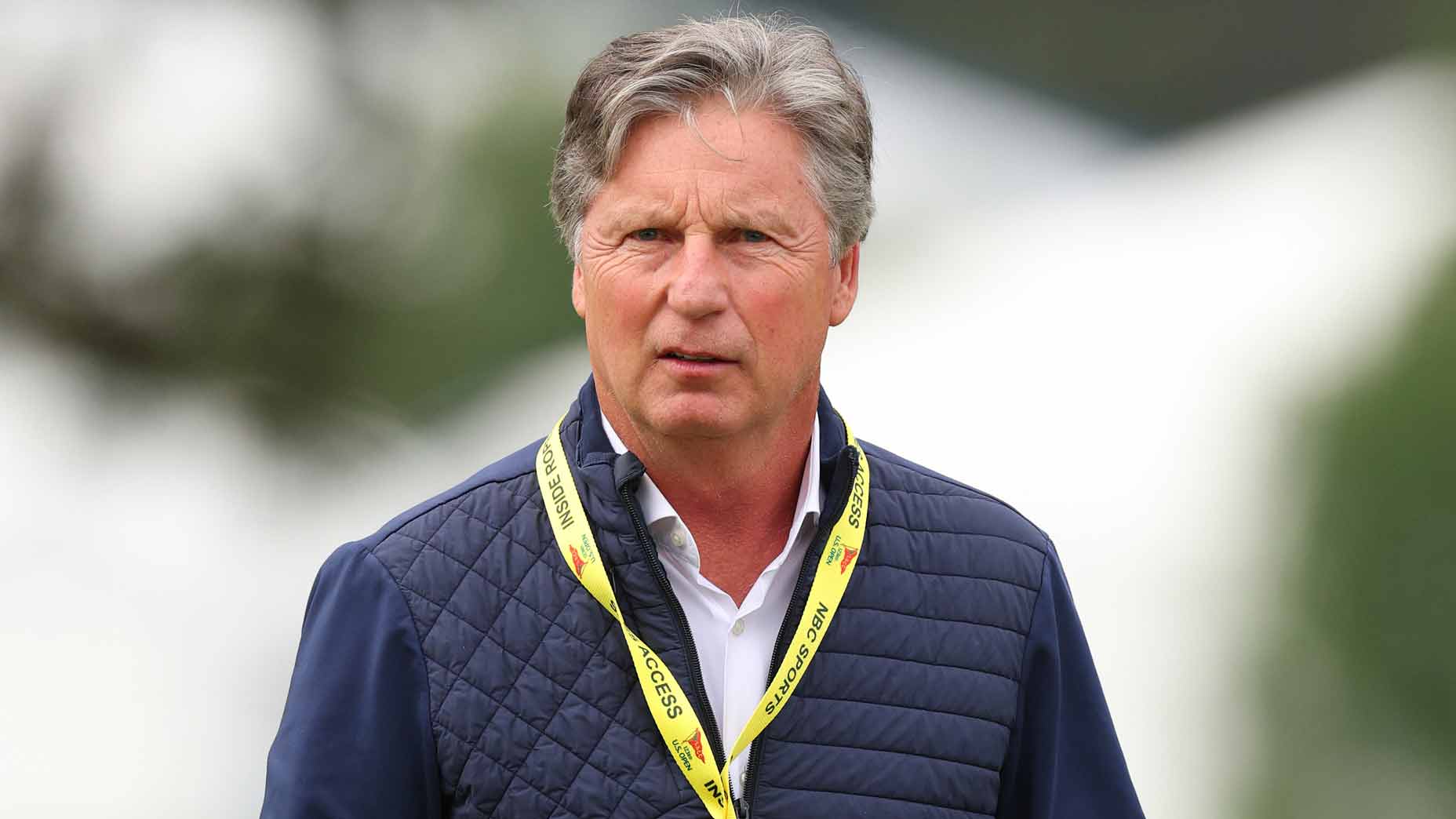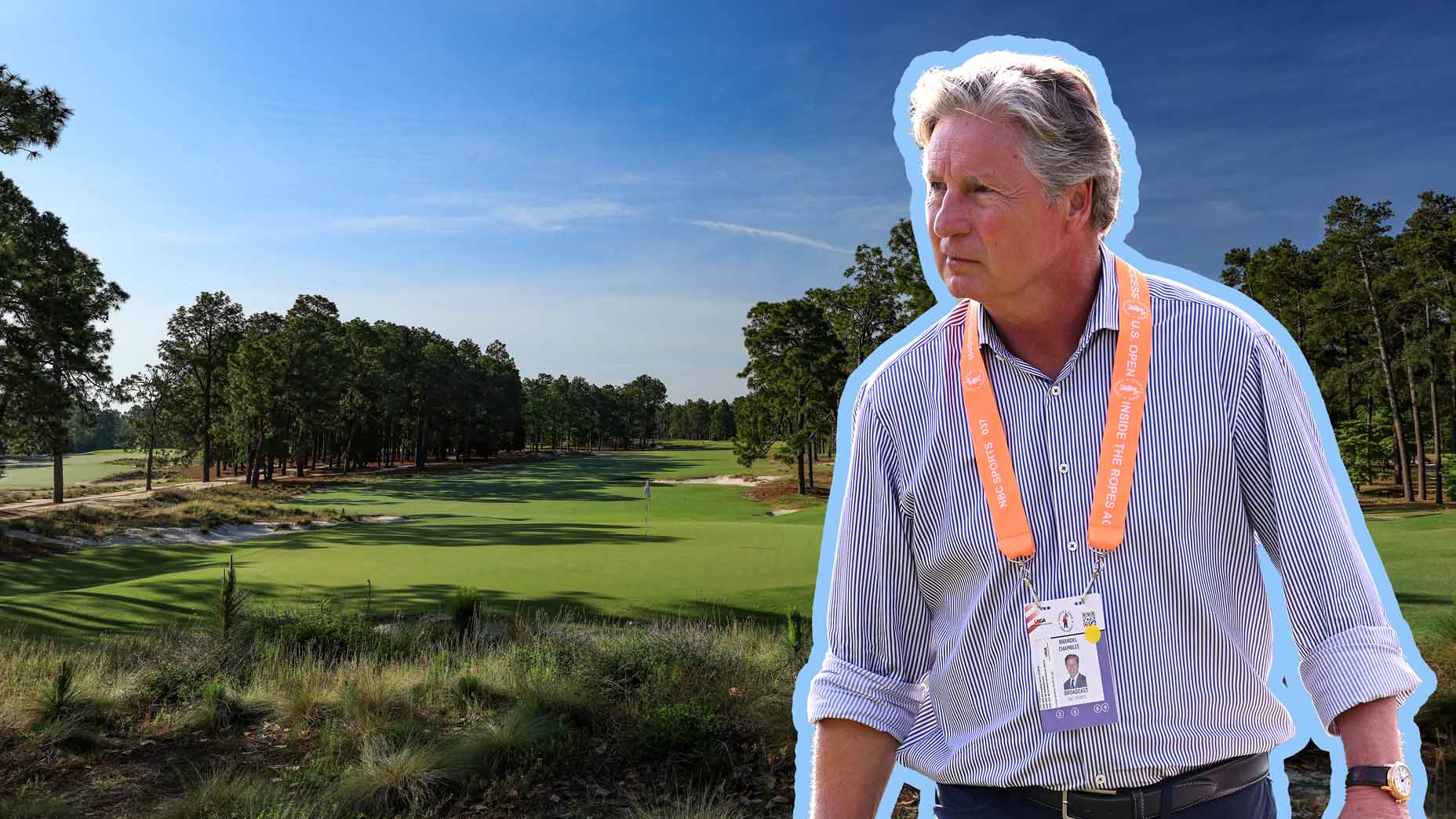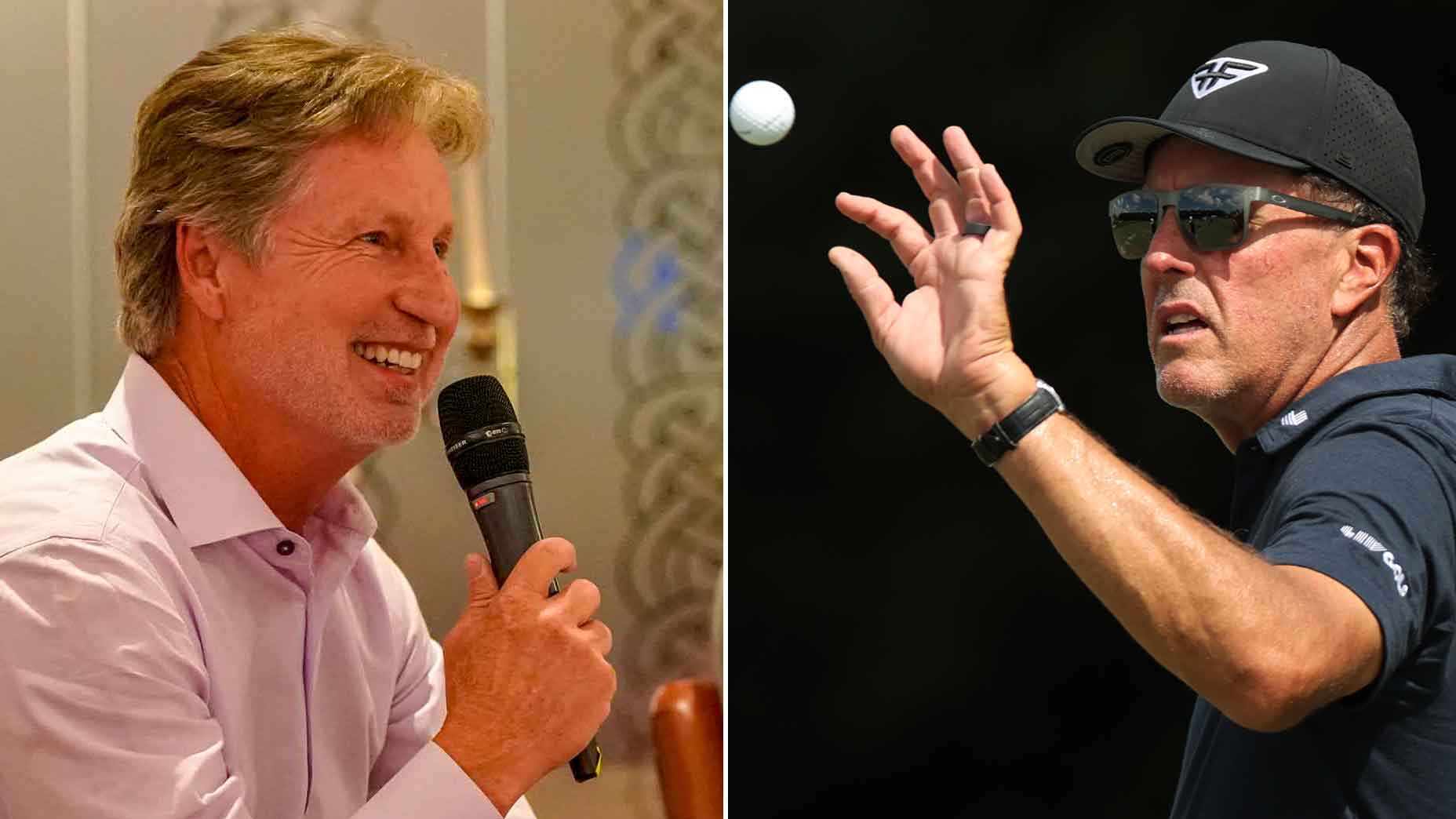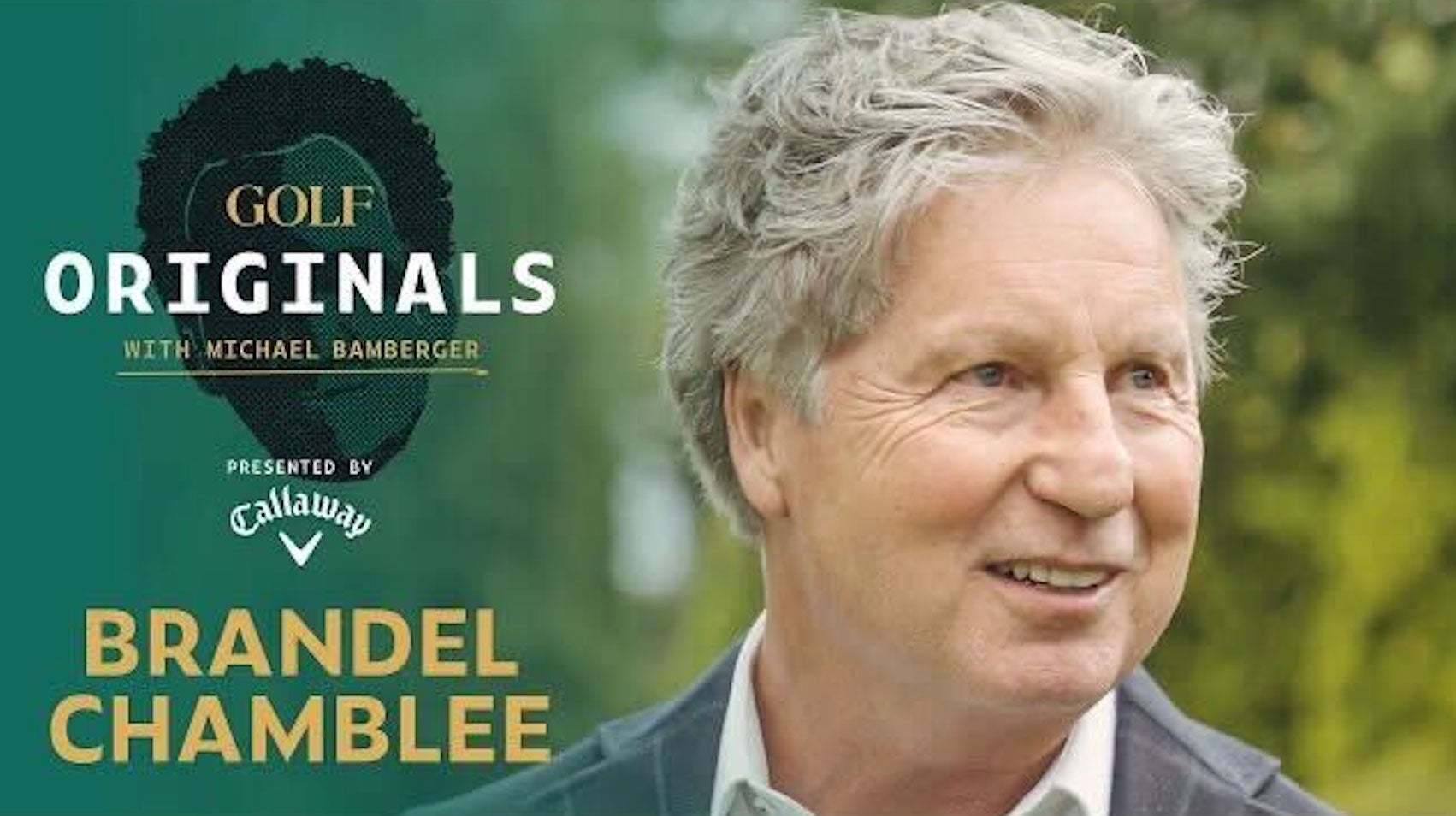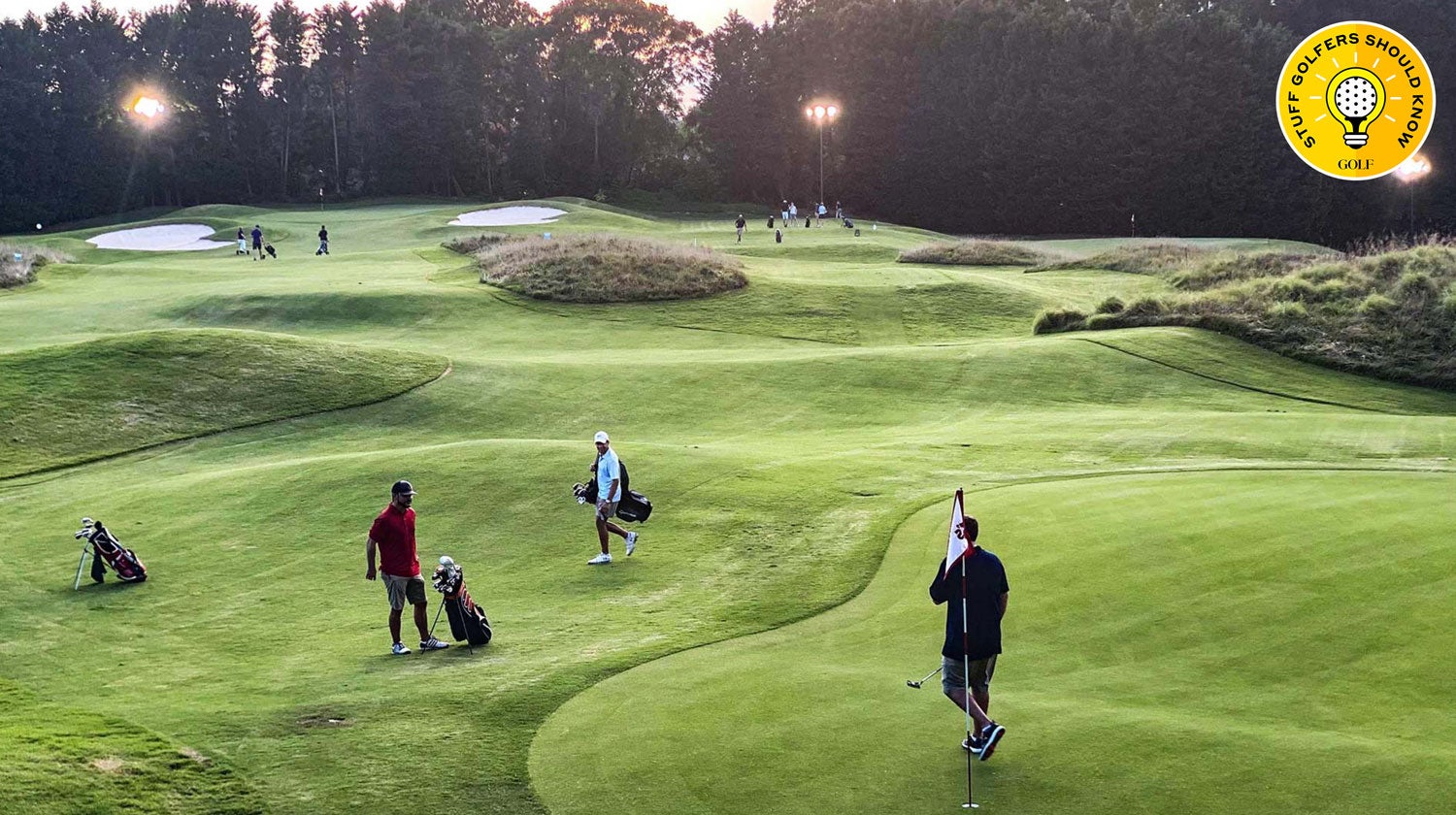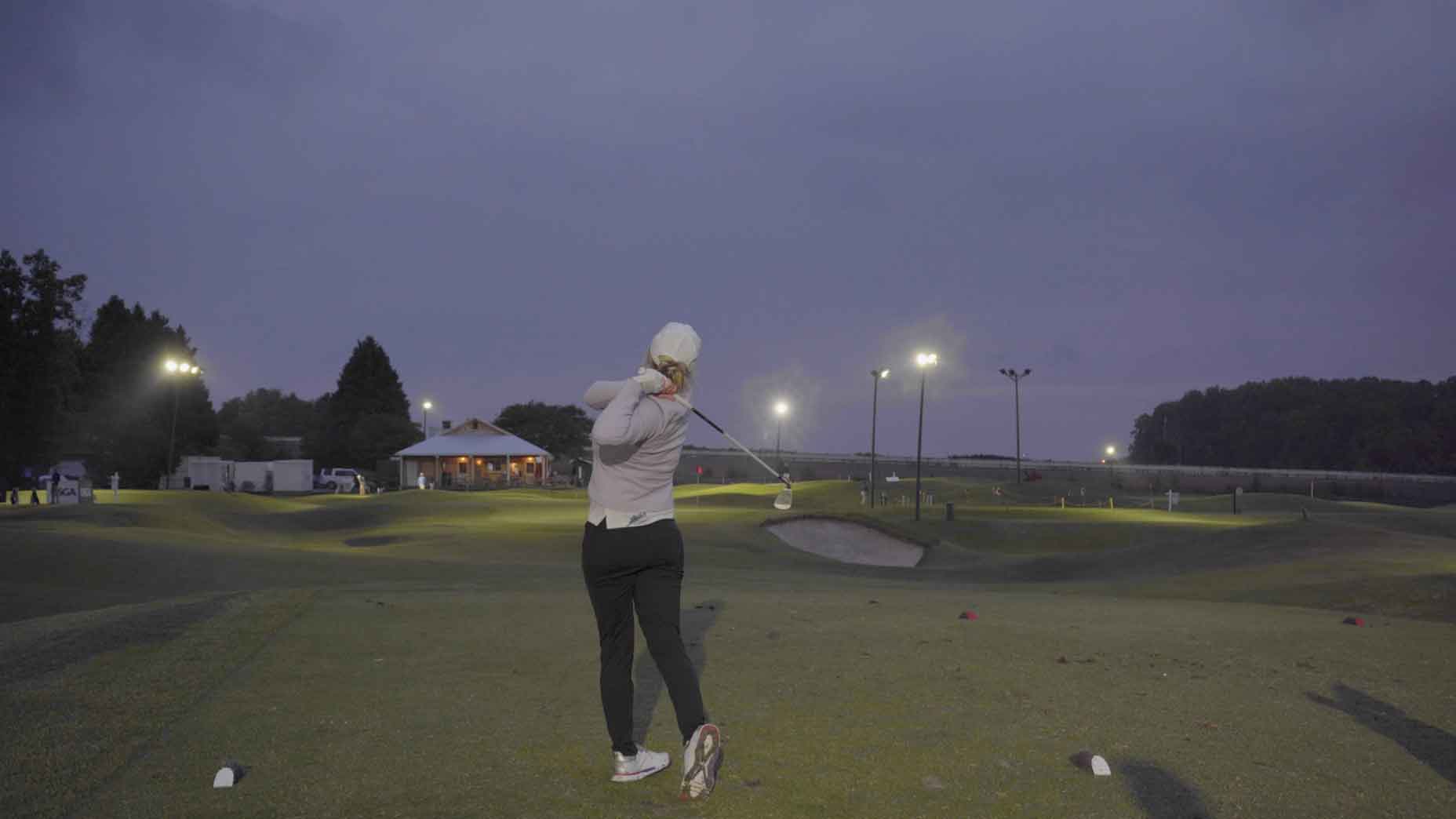Our main goal, here at GOLF Originals, is to bring interesting people to you, dear viewer, without sitting our subject down in a clubhouse Windsor chair on a tartan carpet with a framed poster of the original 1745 Rules of Golf on a nearby wall. With those ground rules in mind, we brought David Feherty, golf broadcasting legend, to the Psychic Eye Bookstore in Las Vegas for our March premiere. A good time. We toured a giant sand pit in South Florida, a course under construction called Sandglass, with Tom Doak, the brilliant course architect, for our April show. Fun! And now, for our May edition, and right on time for the U.S. Open I (women) and U.S. Open II (men), comes Mike Whan, the USGA’s CEO. My colleague Darren Riehl, the producer of this series, and I joined Whan at a nine-hole, mom-and-pop golf course called Palm Valley, about 10 miles or so from TPC Sawgrass. Whan loved it. He was right at home, chatting up the course owner, Chris Hord, and his random playing partner, a retired schoolteacher named Louise.
The distance between PVGC and the Stadium Course is far greater than 10 miles, using a sextant with a metaphorical bias. The weekday green fee at Palm Valley is $18. The course is 1,500 yards, all stretched out. A bad slice might hit a horse. And Mike Whan was having a good time.
That’s really the man in a nutshell, and why this show was such a pleasure to do with him. The CEO of the USGA loves playing golf, being on golf courses, talking to golf people. Whan can pretty much play any course he wants, hobnob with any course owner he wishes, play with whomever he chooses. The Palm Valley course suited him just fine and then some. But at the heart of the man is a public-course golfer who prefers a sleeve off the rack that comes with a bonus fourth ball.
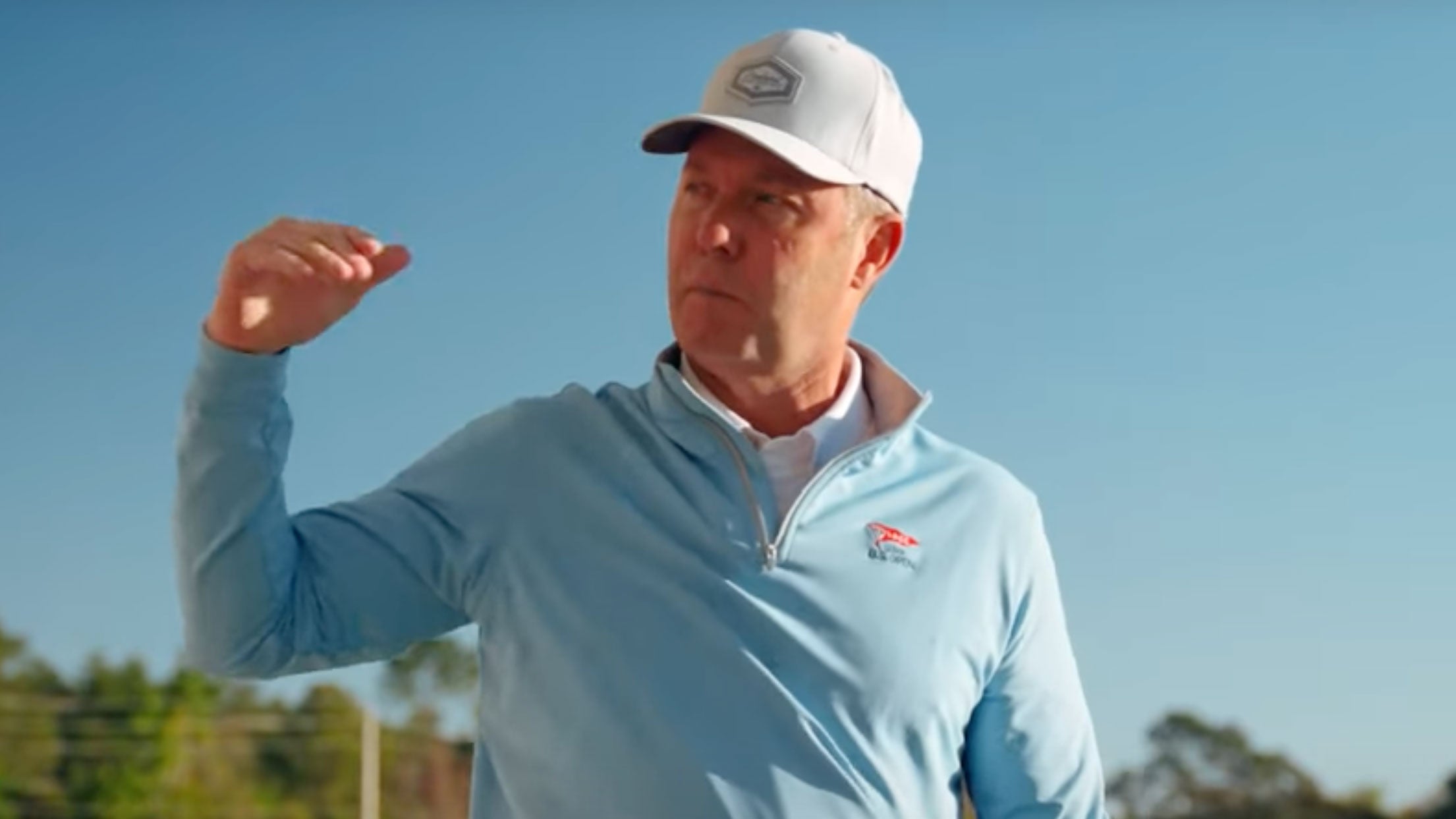
Whan is a good golfer (he can break 80) with an athletic swing (he played football in high school and college). But when he push-shoved another shot into a murky PVGC pond, he said, “I’ll stop at the pro shop on 6 to buy more balls.” The USGA boss does not take himself too seriously! This is an outstanding development.
Wherever he goes in this game, Whan is going to have a good time. And isn’t that why we are drawn to this game in the first place, to have a good time, even through our misery?
In this episode, you will see (we think) why Whan is the ideal person to lead the USGA in this odd time in golf, when participation numbers are at all-time highs (they’re measurable) and frustration with men’s elite professional golf is at a peak, too. (Ask anybody.) Whan, as the LPGA commissioner, helped make the women’s tour more global, with the world’s best women golfers playing more often and for more money on better courses. Whan and his wife, Meg, have three sons, and Whan loves playing golf with them. But in his professional life, he has one eye and part of another on the women’s game. What Meg and Mike Whan miss most about their LPGA days was the front-row seat they had to all the action at the Solheim Cup.
The issues facing the USGA, and golf at large, are serious. Water conservation. Land conservation. A game that struggles with fundamental questions of how far a golf ball should fly and how an inherently complex game can simplify its rules. Also: What constitutes a round? And, while we’re at it, what constitutes a golfer? Whan is one of golf’s most significant figures at a time when the game is at a crossroads.
Whan is a man of strong opinions, and smart enough to know when he needs to keep those opinions to himself. What you’ll see here is a leader in golf who believes in listening, in consensus, in a golf’s greater good.
It’s possible that Louise, our pathfinder at PVGC, did not give us the full danger-Will-Robinson alert to hidden water hazards. Whan registered no complaint. Why would he? He knows how good he has it.
Some years ago, he and his father were driving to Augusta National, making a turn off Washington Road and into the club’s famous driveway, Magnolia Lane. Whan was a “bunker boy” as a kid, raking and weeding Ohio sand traps on hot summer days. His introduction to the game. Father didn’t fully appreciate how far his son had come.
“Mike,” he said, “what are you doing!?”
Mike Whan didn’t take that moment, that clicking turn signal, for granted. We’re glad he’s where he is, in the game and in our series.
Michael Bamberger welcomes your comments at Michael.Bamberger@golf.com


